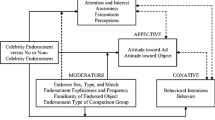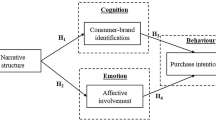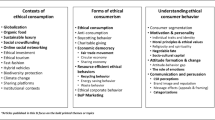Abstract
We study how collectivism, religion-tradition, thriftiness, and status/materialist consumption values jointly shape consumption preferences in seven Asian markets. These markets are diverse but relatively small, so identifying similarities should help companies implement standardized marketing strategies. Using data from 3000+ consumers, we find the effects to be largely similar. Collectivistic values directly and indirectly increase both religious and thriftiness values, both of which negatively affect status consumption values. However, the direct positive effect of collectivistic values on status consumption values is so strong that it dominates all of these countervailing negative effects, which explains the paradoxical affinity of Asian consumers towards luxury consumption while endorsing the moral virtues of thriftiness. We identify the effects these values have on preference towards symbolic (style, prestige, overseas origin) and utilitarian (durability, and value for price) attributes. Our results have implications for international marketing theory by highlighting the role of values in Asian consumption, and for practice by helping marketers arrive at more informed standardized brand/product strategies in these rapidly growing Asian markets. In particular, they support earlier findings that high and increasing luxury consumption in Asia may not be due to increasing individualism nor Westernization, but because collectivists have their own reasons for valuing status consumption.
Résumé
Nous étudions comment le collectivisme, la tradition-religion, l'économie et les valeurs de consommation liées au statut et au matérialisme façonnent conjointement les préférences de consommation sur sept marchés asiatiques. Ces marchés sont diversifiés mais relativement petits, de sorte que l'identification des similitudes devrait aider les entreprises à mettre en œuvre des stratégies de marketing standardisées. En utilisant les données de plus de 3 000 consommateurs, nous constatons que les impacts sont largement similaires. Les valeurs collectivistes augmentent directement et indirectement les valeurs religieuses et économes, lesquelles exercent toutes deux un impact négatif sur les valeurs de consommation liées au statut. Néanmoins, l'impact positif direct des valeurs collectivistes sur les valeurs de consommation liées au statut est si fort qu'il domine tous ces impacts négatifs compensatoires, ce qui explique l'affinité paradoxale des consommateurs asiatiques pour la consommation de luxe tout en approuvant les vertus morales de l'économie. Nous identifions les effets de ces valeurs sur la préférence pour les attributs symboliques (style, prestige, origine étrangère) et utilitaires (durabilité et rapport qualité-prix). Nos résultats ont des implications non seulement pour la théorie du marketing international en mettant en lumière le rôle des valeurs dans la consommation asiatique, mais aussi pour la pratique en aidant les spécialistes du marketing à élaborer de manière mieux informée des stratégies standardisées de marque/produit sur ces marchés asiatiques à croissance rapide. En particulier, ils confirment des résultats antérieurs selon lesquels la consommation élevée et croissante de produits de luxe en Asie n'est peut-être pas due à une augmentation de l'individualisme ou de l'occidentalisation, mais plutôt au fait que les collectivistes ont leurs propres raisons d'apprécier la consommation liée au statut.
Resumen
Estudiamos como el colectivismo, la tradición- religiosa, el carácter ahorrador, y los valores de estatus-materialistas configuran en su conjunta las preferencias de consumo en siete mercados Asiáticos. Estos mercados son diversos, pero relativamente pequeños, entonces el identificar similitudes puede ayudar a las empresas a implementar estrategias de marketing estandarizadas. Usando datos de más de 3.000 consumidores, encontramos que los efectos son en gran medida similares. Los valores colectivistas aumentan tanto directa como indirectamente los valores religiosos y ahorradores, los cuales afectan negativamente los valores de consumo de estatus. Sin embargo, el efecto positivo directo del colectivismo en los valores de consumo de estatus es tan fuerte que domina todos estos efectos negativos compensatorios, lo cual explica la paradójica afinidad de los consumidores Asiáticos de consumo de lujo mientras al mismo tiempo que respalda las virtudes morales del ahorro. Identificamos que los efectos de estos valores tienen en la preferencia por atributos simbólicos (estilo, prestigio y origen extranjero) y utilitaria (durabilidad y valor por el precio). Nuestros resultados tienen implicaciones para la teoría del marketing internacional al resaltar el papel de los valores en el consumo Asiático, y para la práctica ayudar a los profesionales del marketing a llegar a estrategias estandarizadas de marca/producto más informadas en estos mercados Asiáticos. En particular, apoyan los hallazgos anteriores que el creciente consumo de lujo en Asia puede no deberse al creciente individualismo ni a la occidentalización, sino que es que los colectivistas tienen sus propias razones para valorar el consumo de estatus.
Resumo
Estudamos como coletivismo, tradição religiosa, parcimônia e valores de status/consumo materialista moldam conjuntamente preferências de consumo em sete mercados asiáticos. Estes mercados são diversos, porém relativamente pequenos, sendo que a identificação de similaridades pode ajudar empresas a implementar estratégias de marketing padronizadas. Usando dados de mais de 3.000 consumidores, descobrimos que os efeitos são bastante semelhantes. Valores coletivistas direta e indiretamente ampliam valores religiosos e de parcimônia, os quais afetam negativamente valores de consumo de status. No entanto, o efeito positivo direto de valores coletivistas nos valores de consumo de status é tão forte que domina todos estes efeitos negativos amenizadores, o que explica a afinidade paradoxal de consumidores asiáticos para com o consumo de luxo, ao mesmo tempo que apoiam as virtudes morais da parcimónia. Identificamos os efeitos que estes valores têm na preferência por atributos simbólicos (estilo, prestígio, origem no estrangeiro) e utilitários (durabilidade e valor pelo preço). Nossos resultados têm implicações para a teoria de marketing internacional ao destacar o papel de valores no consumo de asiáticos, e para a prática, ao ajudar profissionais de marketing a atingir estratégias de marcas/produtos padronizadas e mais bem informadas nestes mercados asiáticos em rápido crescimento. Em particular, resultados apoiam conclusões anteriores de que o crescente e elevado consumo de luxo na Ásia pode não ser devido ao crescente individualismo nem à ocidentalização, mas porque coletivistas têm as suas próprias razões para valorizar o consumo de status.
摘要
我们研究集体主义、宗教传统、节俭和地位/物质主义消费价值观如何共同塑造七个亚洲市场的消费偏好。这些市场多种多样但相对较小, 因此识别相似性应该有助于公司实施标准化营销策略。通过使用 3000 多位消费者的数据, 我们发现效果基本相似。集体主义价值观直接和间接地增加了宗教价值观和节俭价值观, 这两者都会对地位消费价值观产生负面影响。然而, 集体主义对地位消费价值观的直接的积极影响如此之大, 以至于它主导了所有这些抵消性的负面影响, 这解释了亚洲消费者在认可节俭的道德美德的同时对奢侈品消费的自相矛盾的亲和力。我们确定了这些价值观对象征性(风格、声望、海外背景)和功利性(耐用性和性价比)属性的偏好的影响。我们的研究结果通过强调价值观在亚洲消费中的作用对国际营销理论具有启示, 并通过帮助营销人员在这些快速成长的亚洲市场中制定更明智的标准化品牌/产品策略来对实践具有启示。特别是, 它们支持先前的研究结果, 即亚洲奢侈品消费的高增长和不断增长可能不是由于个人主义或西化的增加, 而是因为集体主义者有自己重视身份消费的原因。

Similar content being viewed by others
Change history
15 February 2024
A Correction to this paper has been published: https://doi.org/10.1057/s41267-024-00684-9
References
Arunachalam, S., Ramaswami, S., Herrmann, P., & Walker, D. (2018). Innovation pathway to profitability: The role of entrepreneurial orientation and marketing capabilities. Journal of the Academy of Marketing Science, 46(4), 744–766.
Asparouhov, T., & Muthén, B. (2014). Multiple-group factor analysis alignment. Structural Equation Modeling: A Multidisciplinary Journal, 21(4), 495–508.
Awanis, S., Schlegelmilch, B. B., & Cui, C. C. (2017). Asia’s materialists: Reconciling collectivism and materialism. Journal of International Business Studies, 48(8), 964–991.
Barr, M. D. (2000). Lee Kuan Yew and the “Asian values” debate. Asian Studies Review, 24(3), 309–334.
Batra, R., Homer, P., & Kahle, L. R. (2001). Values, susceptibility to normative influence, and attribute importance weights: A nomological analysis. Journal of Consumer Psychology, 11(2), 115–128.
Batra, R., Ramaswamy, V., Alden, D., Steenkamp, J.-B.E.M., & Ramachander, S. (2000). Effects of brand local and non-local origin on consumer attitudes in developing countries. Journal of Consumer Psychology, 9(2), 83–95.
Bearden, W. O., Money, R. B., & Nevins, J. L. (2006). A measure of long-term orientation: Development and validation. Journal of the Academy of Marketing Science, 34(3), 456–467.
Belk, R. W. (1985). Materialism: Trait aspects of living in the material world. Journal of Consumer Research, 12(3), 265–280.
Beugelsdijk, S., & Welzel, C. (2018). Dimensions and dynamics of national culture: Synthesizing Hofstede with Inglehart. Journal of Cross-Cultural Psychology, 49(10), 1469–1505.
Campaign Asia. (2005). Dove addresses ‘Real’ Beauty issues in Asia. Retrieved July 15, 2023, from www.campaignasia.com/article/dove-addresses-real-beauty-issues-in-Asia/198081.
Campaign Asia. (2016). Coca-Cola’s ‘Taste the Feeling’ Creative for ASEAN. Retrieved March 17, 2023, from www.campaignasia.com/gallery/coca-colas-taste-the-feeling-creative-for-asean/406609.
Casson, M., & Li, Y. (2022). Complexity in international business: The implications for theory. Journal of International Business Studies, 53(9), 2037–2049.
Cohen, A. B., & Varnum, M. E. W. (2016). Beyond East vs. West: Social class, region, and religion as forms of culture. Current Opinion in Psychology, 8(April), 5–9.
Dubois, D., & Ordabayeva, N. (2015). Social hierarchy, social status, and status consumption. In M. I. Norton, D. D. Rucker, & C. Lamberton (Eds.), The Cambridge handbook of consumer psychology (pp. 332–367). Cambridge University Press.
Dubois, D., Jung, S. J., & Ordabayeva, N. (2021). The psychology of luxury consumption. Current Opinion in Psychology, 39(June), 82–87.
Fornell, C., & Larcker, D. F. (1981). Evaluating structural equation models with unobservable variables and measurement error. Journal of Marketing Research, 18(1), 39–50.
Frith, K. T. (2003). Advertising and the homogenization of cultures: Perspectives from ASEAN. Asian Journal of Communication, 13(1), 37–54.
Goenka, S., & Thomas, M. (2020). The malleable morality of conspicuous consumption. Journal of Personality and Social Psychology., 118(3), 562–583.
Held, M., Mueller, J., Deutsch, F., Grzechnik, E., & Welzel, C. (2009). Value structures and dimensions: Evidence from the German WVS. World Values Research, 2(3), 56–77.
Hitlin, S., & Piliavin, J. A. (2004). Values: Reviving a dormant concept. Annual Review of Sociology, 30(1), 359–393.
Hofstede, G. (2001). Culture’s consequences: Comparing values, behaviors, institutions, and organizations across nations. Thousand Oaks, CA: Sage.
Hofstede, G., & Bond, M. H. (1988). The Confucius connection: From cultural roots to economic growth. Organizational Dynamics, 16(4), 4–21.
Hofstede, G., & Minkov, M. (2010). Long-versus short-term orientation: New perspectives. Asia Pacific Business Review, 16(4), 493–504.
Inglehart, R., Haerpfer, C. W., Moreno, A., Welzel, C., Kizilova, K., Diez-Medrano, J., et al. (2014). World values survey: Round six - country-pooled datafile. Madrid: JD Institute.
Kapferer, J., & Valette-Florence, P. (2018). The impact of brand penetration and awareness on luxury brand desirability. Journal of Business Research, 83(February), 38–50.
Katz, D. (1960). The functional approach to the study of attitudes. Public Opinion Quarterly, 24(2), 163–204.
Kharas, H. (2017). The unprecedented expansion of the global middle class: An update (pp. 1939–9383). Washington DC: Brookings Institution, ISSN.
Kim, B. S. K., Atkinson, D. R., & Yang, P. H. (1999). The Asian values scale: development, factor analysis, validation, and reliability. Journal of Counseling Psychology, 46(3), 342–352.
Lastovicka, J. L., Bettencourt, L. A., Hughner, R. S., & Kuntze, R. J. (1999). Lifestyle of the tight and frugal: Theory and measurement. Journal of Consumer Research, 26(1), 85–98.
Lee, J., & Shrum, L. J. (2012). Conspicuous Consumption versus charitable behavior in response to social exclusion: A differential needs explanation. Journal of Consumer Research, 39(3), 530–544.
Madan, S., Savani, K., & Katsikeas, C. S. (2023). Privacy please: Power distance and people’s responses to data breaches across countries. Journal of International Business Studies, 54(4), 731–754.
Malhotra, N. K., Kim, S. S., & Patil, A. (2006). common method variance in is research: A comparison of alternative approaches and a reanalysis of past research. Management Science, 52(12), 1865–1883.
Marketing Interactive. (2022). ‘Impossible is Nothing’ for Adidas as it doubles down on commitment to women. Retrieved 17 February, 2023, from www.marketing-interactive.com.
Mathras, D., Cohen, A. B., Mandel, N., & Mick, D. G. (2016). The effects of religion on consumer behavior. Journal of Consumer Psychology, 26(2), 298–311.
Muthén, B., & Asparouhov, T. (2012). Bayesian structural equation modeling: A more flexible representation of substantive theory. Psychological Methods, 17(3), 313–335.
Ng, S., & Lee, A. Y. (Eds.). (2015). Handbook of culture and consumer behavior. New York: Oxford University Press.
Norenzayan, A., & Shariff, A. F. (2008). The origin and evolution of religious prosociality. Science, 322(5898), 58–62.
Osgood, C. E., & Tannenbaum, P. H. (1955). The principle of congruity in the prediction of attitude change. Psychological Review, 62(1), 42–55.
Park, C. W., Jaworski, B., & MacInnis, D. (1986). Strategic brand concept-image management. Journal of Marketing, 50(October), 135–145.
Pieters, R. (2013). Bidirectional dynamics of materialism and loneliness: Not just a vicious cycle. Journal of Consumer Research, 40(4), 615–631.
Podsakoff, P. M., MacKenzie, S. B., Lee, J. Y., & Podsakoff, N. P. (2003). Common method biases in behavioral research: A critical review of the literature and recommended remedies. Journal of Applied Psychology, 88(5), 879–903.
Putney, S., & Middleton, R. (1961). Dimensions and correlates of religious ideologies. Social Forces, 39(4), 285–290.
Richins, M. L. (1994). Special possessions and the expression of material values. Journal of Consumer Research, 21(3), 522–533.
Richins, M. L. (2004). The material values scale: Measurement properties and development of a short form. Journal of Consumer Research, 31(1), 209–219.
Richins, M. L., & Dawson, S. (1992). A consumer values orientation for materialism and its measurement: Scale development and validation. Journal of Consumer Research, 19(3), 303–316.
Samiee, S., & Roth, K. (1992). The influence of global marketing standardization on performance. Journal of Marketing, 56(2), 1–17.
Schmitt, B., & Lee, L. (Eds.). (2015). The psychology of the Asian consumer. New York: Routledge.
Schwartz, S. H., & Bardi, A. (2001). Value Hierarchies across cultures: Taking a similarities perspective. Journal of Cross-Cultural Psychology, 32(3), 268–290.
Schwartz, S. H., Cieciuch, J., Vecchione, M., Davidov, E., Fischer, R., Beierlein, C., Ramos, A., Verkasalo, M., Lönnqvist, J.-E., Demirutku, K., Dirilen-Gumus, O., & Konty, M. (2012). Refining the theory of basic individual values. Journal of Personality and Social Psychology, 103(4), 663–688.
Shrum, L. J., et al. (2013). Reconceptualizing materialism as identity goal pursuits: Functions, processes, and consequences. Journal of Business Research, 66(8), 1179–1185.
Shukla, P., Rosendo-Rios, V., Trott, S., Lyu, J., & (Daisy), & Khalifa, D. (2022). Managing the challenge of luxury democratization: A multicountry analysis. Journal of International Marketing, 30(4), 44–59.
Singelis, T. M. (1994). The measurement of independent and interdependent self-construals. Personality and Social Psychology Bulletin, 20(5), 580–591.
Sproles, G. B., & Kendall, E. L. (1986). A methodology for profiling consumers’ decision-making styles. The Journal of Consumer Affairs, 20(2), 267–279.
Steenkamp, J.-B.E.M., & Baumgartner, H. (1998). Assessing measurement invariance in cross-national consumer research. Journal of Consumer Research, 25(1), 78–90.
Sun, J. J., Bellezza, S., & Paharia, N. (2021). Buy less, buy luxury: Understanding and overcoming product durability neglect for sustainable consumption. Journal of Marketing, 85(3), 28–43.
Torelli, C. J., Özsomer, A., Carvalho, S. W., Keh, H. T., & Maehle, N. (2012). Brand concepts as representations of human values: Do cultural congruity and compatibility between values matter? Journal of Marketing, 76(4), 92–108.
Triandis, H. C. (1995). Individualism and collectivism. Boulder, CO: Westview Press.
Triandis, H. C., & Gelfand, M. J. (1998). Converging measurement of horizontal and vertical individualism and collectivism. Journal of Personality and Social Psychology, 74(1), 118.
Vinson, D. E., Scott, J. E., & Lamont, L. M. (1977). The role of personal values in marketing and consumer behavior. Journal of Marketing, 41(2), 44–50.
Watson, J. J. (2003). The relationship of materialism to spending tendencies, saving, and debt. Journal of Economic Psychology, 24(6), 723–739.
Wong, N. Y., & Ahuvia, A. (1998). Personal taste and family face: Self-concepts and luxury consumption in Confucian and Western societies. Psychology and Marketing, 15(5), 423–441.
Wuthnow, R. (1999). Growing up religious: Christians and jews and their journeys of faith. Boston, MA: Beacon Press.
Acknowledgements
The authors gratefully acknowledge the former Institute for Asian Consumer Insights at Nanyang Business School, Singapore, for the data set used in this paper.
Author information
Authors and Affiliations
Corresponding author
Additional information
Publisher's Note
Springer Nature remains neutral with regard to jurisdictional claims in published maps and institutional affiliations.
Accepted by Saeed Samiee, Area Editor, 25 September 2023. This article has been with the authors for four revisions.
The original online version of this article was revised: Due to typesetting mistake, the Supplementary file unfortunately reflected the page numbers on top of each page. The page numbers should not exist in the Supplementary file. The Publisher apologizes for the mistake. The Supplementary file has been corrected.
Supplementary Information
Below is the link to the electronic supplementary material.
Rights and permissions
Springer Nature or its licensor (e.g. a society or other partner) holds exclusive rights to this article under a publishing agreement with the author(s) or other rightsholder(s); author self-archiving of the accepted manuscript version of this article is solely governed by the terms of such publishing agreement and applicable law.
About this article
Cite this article
Batra, R., Arunachalam, S., Wong, N.Y.C. et al. Unpacking collective materialism: how values shape consumption in seven Asian markets. J Int Bus Stud 55, 361–375 (2024). https://doi.org/10.1057/s41267-023-00661-8
Received:
Revised:
Accepted:
Published:
Issue Date:
DOI: https://doi.org/10.1057/s41267-023-00661-8




